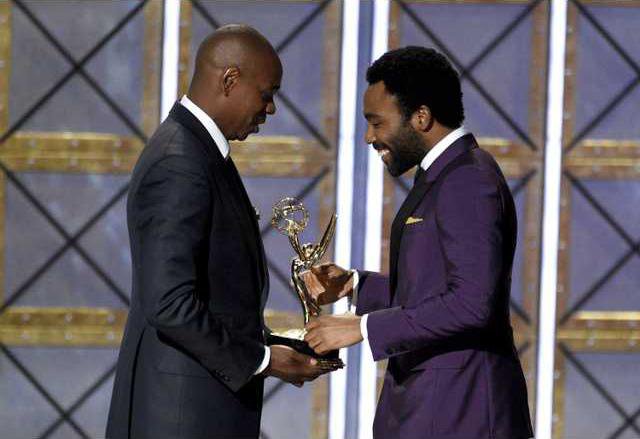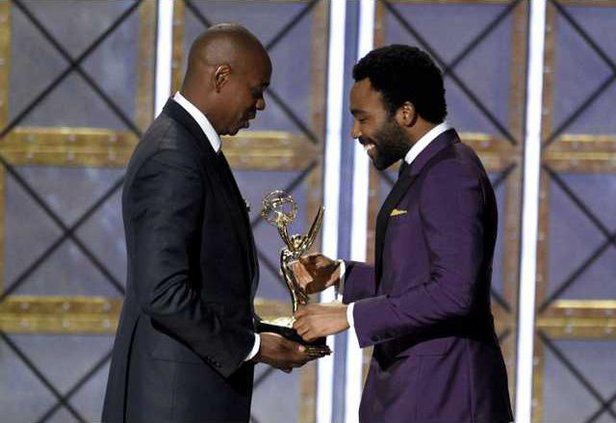Actor Donald Glover recently revealed what he did after he landed the role of Lando Calrissian.
The Atlanta actor told CinemaBlend he went home directly after he won the role in the new Star Wars film Solo: A Star Wars Story, ordered some food and, well, watched Star Wars.
The day I found out I got it, I remember I bought like a whole pizza and went home and watched The Empire Strikes Back, Glover said. That was definitely the beginning, but then I just watched a bunch of other cool 70s stuff that I thought would be his kind of style.
His style is referencing Billy Dee Williams, who played Lando Calrissian in The Empire Strikes Back.
Glover said he's enjoyed working on Solo because it gave him a chance to see the iconic Star Wars characters on their own, according to The Hollywood Reporter.
"I like seeing Han and Lando beforehand because it allows you to know that, yeah, people aren't perfect. People have to grow," he said.
According to Mashable, Lando has been one of the shining parts of the recent Solo trailers. Fans have praised Glover for his ability to channel Williams in his portrayal.
Solo hits theaters May 25. It will premiere May 10 at the Cannes Film Festival.
The Atlanta actor told CinemaBlend he went home directly after he won the role in the new Star Wars film Solo: A Star Wars Story, ordered some food and, well, watched Star Wars.
The day I found out I got it, I remember I bought like a whole pizza and went home and watched The Empire Strikes Back, Glover said. That was definitely the beginning, but then I just watched a bunch of other cool 70s stuff that I thought would be his kind of style.
His style is referencing Billy Dee Williams, who played Lando Calrissian in The Empire Strikes Back.
Glover said he's enjoyed working on Solo because it gave him a chance to see the iconic Star Wars characters on their own, according to The Hollywood Reporter.
"I like seeing Han and Lando beforehand because it allows you to know that, yeah, people aren't perfect. People have to grow," he said.
According to Mashable, Lando has been one of the shining parts of the recent Solo trailers. Fans have praised Glover for his ability to channel Williams in his portrayal.
Solo hits theaters May 25. It will premiere May 10 at the Cannes Film Festival.








